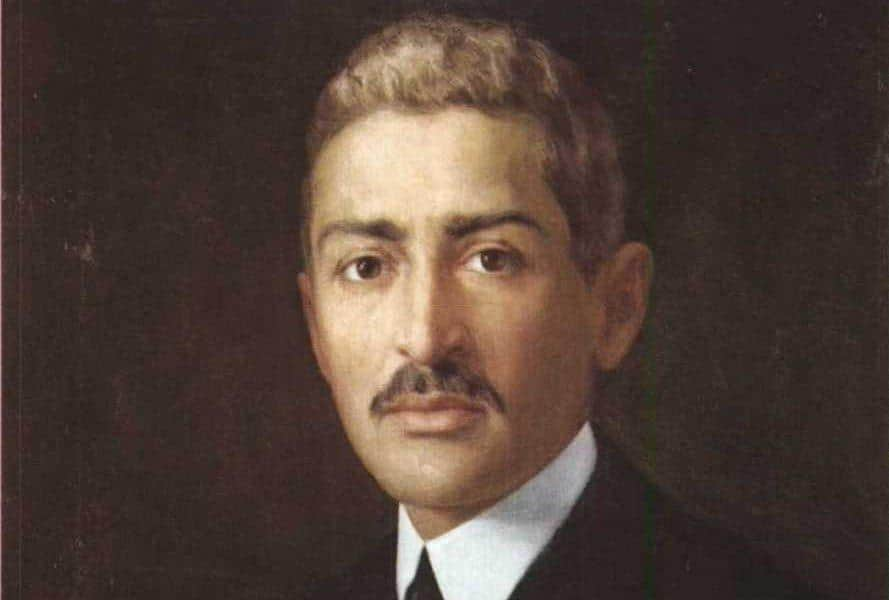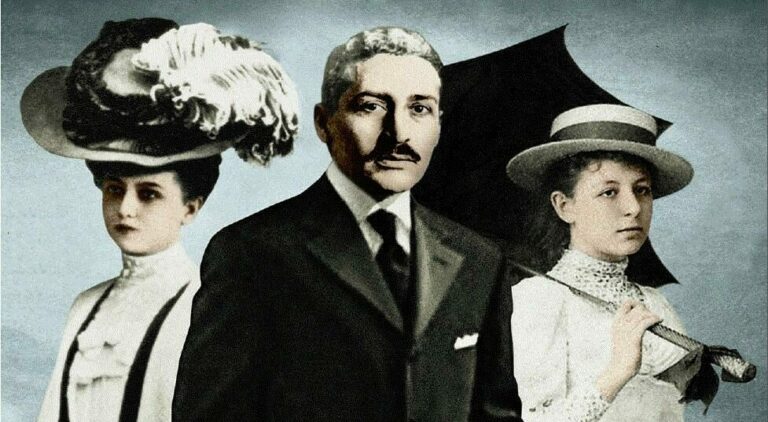
Ion Dragoumis remains one of the most compelling and enigmatic figures in modern Greek history. A patriot, diplomat, writer, and revolutionary, Dragoumis embodied the complex tensions of his era — torn between tradition and progress, East and West, idealism and harsh political realities. His life and works offer a window into the struggles and aspirations of early 20th-century Greece, a nation at the crossroads of identity, sovereignty, and modernization. This article offers an in-depth exploration of Ion Dragoumis’s life, his ideas, and his lasting influence on Greek identity, culture, and politics, highlighting his enduring Ion Dragoumis legacy.
The Early Life of Ion Dragoumis: Foundations of a Visionary
Ion Dragoumis was born in 1878 into a prominent and politically active Greek family in Athens. His father, Stephanos Dragoumis, was a respected politician and judge who briefly served as prime minister, placing Ion in the heart of political discourse from a young age. This upbringing steeped him in the ideas of Greek nationalism, law, and governance.
Growing up during a time of national uncertainty and geopolitical turmoil, Ion was acutely aware of the challenges facing Greece and the wider region. The decline of the Ottoman Empire and the national struggles of Greeks living under Ottoman rule, particularly in Macedonia and Asia Minor, profoundly shaped his worldview. He developed a passionate commitment to the concept of a “Greater Greece” — a unified nation that could reclaim and protect Hellenic territories and identity. This vision would remain central throughout his life and is a key part of the Ion Dragoumis legacy.
Beyond politics, Ion’s education included exposure to philosophy, literature, and history. This diverse intellectual foundation enabled him to think deeply about identity and cultural survival — themes that would permeate his later writings and diplomatic efforts.
A Diplomatic Career Marked by Contradictions and Commitment
Entering Greece’s diplomatic service in the early 1900s, Ion Dragoumis was posted in several European capitals. His official role as a diplomat often conflicted with his personal convictions and revolutionary activities, revealing a man constantly balancing state duties with nationalist passion.
During the Macedonian Struggle (1904-1908), Dragoumis became a fervent advocate for Greek armed resistance against Ottoman control in Macedonia. From his diplomatic posts abroad, he coordinated efforts to support guerrilla fighters and promote the Greek cause. His hands-on involvement went beyond conventional diplomacy and put him at odds with some government factions, but earned him the respect of many patriots.
This diplomatic period highlighted a deeper philosophical struggle that Dragoumis wrestled with throughout his life — the challenge of reconciling Greece’s European aspirations with its Byzantine and Eastern heritage. He argued that Greece should neither blindly emulate Western models nor retreat into isolationist nationalism. Instead, it should carve out an authentic path that acknowledged its unique cultural roots while embracing progress. This nuanced worldview remains a cornerstone of the Ion Dragoumis legacy and informs much of modern Greek cultural debate.
Ion Dragoumis as a Writer, Philosopher, and Cultural Critic
Apart from his political and diplomatic engagements, Ion Dragoumis was a prolific and profound writer. His essays, personal letters, and books showcase a thinker deeply engaged with the crises of identity and modernization confronting Greece.
Dragoumis was critical of both extremes: the wholesale adoption of Western ideals without regard to Greek traditions, and the narrow-minded nationalism that rejected change. His writings emphasize a delicate balance — honoring Greek history, Orthodox faith, and folk culture while encouraging societal renewal and openness.
His seminal work, “Hellenism or the Revival of the Nation”, presents a powerful philosophical argument for cultural revival rooted in authenticity. In it, Dragoumis explores the soul of the Greek people, the importance of language, and the spiritual values that bind the nation. These ideas resonate far beyond their time, making him a pioneer in the discourse about national identity and cultural preservation.
The intellectual legacy of Ion Dragoumis has been revisited by many modern scholars who see in his work a prescient critique of globalization’s effects on cultural uniqueness. This body of thought is a key element of the ongoing Ion Dragoumis legacy.

The Tragic End and the Political Turmoil Surrounding His Death
The violent end of Ion Dragoumis’s life in 1920 shocked Greece. Assassinated during a period of intense political upheaval, his death silenced a voice that had persistently challenged both foreign domination and domestic political complacency.
The period leading to his assassination was marked by divisive national debates, including the aftermath of World War I, the Asia Minor Campaign, and internal power struggles between monarchists and republicans. Dragoumis’s outspoken views and refusal to compromise made him a target. His assassination deprived Greece of one of its most visionary intellectuals and activists.
Despite his early death, the Ion Dragoumis legacy continued to grow in significance. Intellectuals, historians, and politicians have since revisited his ideas, recognizing the courage and foresight with which he approached Greece’s national dilemmas.
Why Ion Dragoumis’s Legacy Matters in Contemporary Greece
Today, as Greece continues to navigate its place in the European Union and the global community, the questions Ion Dragoumis grappled with remain relevant. Issues of identity, cultural authenticity, national sovereignty, and the balance between tradition and modernity still dominate political and social discourse.
Dragoumis’s insistence on authenticity and thoughtful progress offers a blueprint for managing these tensions. His belief that Greece should not lose sight of its historical and cultural essence while engaging with the modern world is echoed in contemporary debates over language, education, and cultural policy.
For historians and citizens alike, exploring the Ion Dragoumis legacy is essential for understanding not just Greece’s past but also its present and future challenges. His life is a reminder of the power and complexity involved in nation-building and cultural preservation.
Outbound Resources for Further Study
-
To delve deeper into the philosophy and political impact of Ion Dragoumis, the Onassis Foundation offers rich archival material and analyses: onassis.org
-
For official records and historical context about Greece’s diplomatic history and the Macedonian Struggle, consult the Hellenic Ministry of Foreign Affairs archives: mfa.gr
-
The National Hellenic Research Foundation provides extensive research on Greek intellectual history and modern philosophy, including works related to Dragoumis: eie.gr
Frequently Asked Questions (FAQ)
Q1: Who was Ion Dragoumis?
A: Ion Dragoumis was a Greek diplomat, writer, and revolutionary active in the early 20th century, known for his vision of a culturally authentic and modern Greece.
Q2: What was Ion Dragoumis’s role in the Macedonian Struggle?
A: He actively supported Greek guerrilla fighters against Ottoman rule and used his diplomatic position to advocate for Greek national interests.
Q3: What are the main themes of Ion Dragoumis’s writings?
A: His works focus on Greek identity, balancing tradition and modernization, and the importance of preserving cultural authenticity.
Q4: How did Ion Dragoumis die?
A: He was assassinated in 1920 during a politically unstable period in Greece, ending his career prematurely.
Q5: Why is Ion Dragoumis relevant today?
A: His thoughts on national identity and cultural preservation continue to influence discussions on Greece’s cultural and political challenges.
Q6: Where can I learn more about Ion Dragoumis?
A: Trusted sources include the Onassis Foundation, Hellenic Ministry of Foreign Affairs archives, and National Hellenic Research Foundation.









